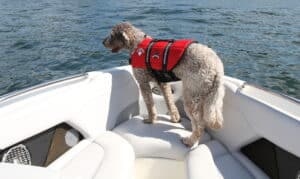When looking into training your dog you will notice that there are quite a few different ways in which you can do it. Each different dog training school teaches differently, so how do you know which ways are right and which ways are wrong? Also what skills are actually needed to make you a god dog handler?
The Skills You Need to Be a Dog Handler
Whilst professional dog handlers may make it look easy, it can actually be a lot of hard work. This means that first of all you will need a dedication to your dog and you will also need a lot of patience. It is so easy to become agitated and frustrated throughout training but if you are to train your dog properly, you are going to have to learn to be more patient than usual and encourage them as much as possible instead of snapping and dragging your dog around.
Another thing many people do not think about is that their body language is also actually quite important in dog training. So not only do you have to be aware of what your dog is doing, but you also need to know what your body is doing too as this is what judges look at during obedience competitions. Three important tips to remember include:
- Hand Signals should be used
- Always be consistent
- Know Your Dog
Both of these tips are important and you will find that in proper dog training you will mainly be using hand signals to tell your dog what is expected of them. However in order to teach hand signals you need to first teach voice signals. Once your dog is comfortable with voice commands, start introducing hand signals into the training. At first you may need to make your signals overly enthusiastic. This will help to grab the dog’s attention and they will start associating certain commands with certain hand signals. However as the dog becomes more experienced you will need to gradually stop giving such enthusiastic signals and make them a little more subtle. In competitions dog handlers give slight signals only and it is all about subtle control of over your dog.
Consistency is also an extremely important thing to remember when training any dog. You have to be consistent in order for the dog to learn anything. All dogs are different but mainly they do take a while to learn things and training sessions should be kept short. By making lessons short and fun your dog will soon start to look forward to the sessions and they will be eager to please you also. So if in the beginning your dog does not always do everything that they are told, do not show your frustration and simply gently correct the dog and be consistent. Your consistency will pay off in the end and you will end up with a trained and happy dog.
Finally the third tip is to know your dog. You need to know how your dog will react in certain situations and you need to know if they are capable of doing what you are asking them to do. There are different training methods available and not all of them are suitable for your dog. For example, if you have a gentle dog then it is certainly not a good idea to treat them rough and firm as they will soon become scared of training and they will not want to know about what you want from them, they will simply not want to do it because they are frightened of the consequences.
Overall remember these tips and you should find that you have a well behaved dog who is capable of competing at a professional level.





